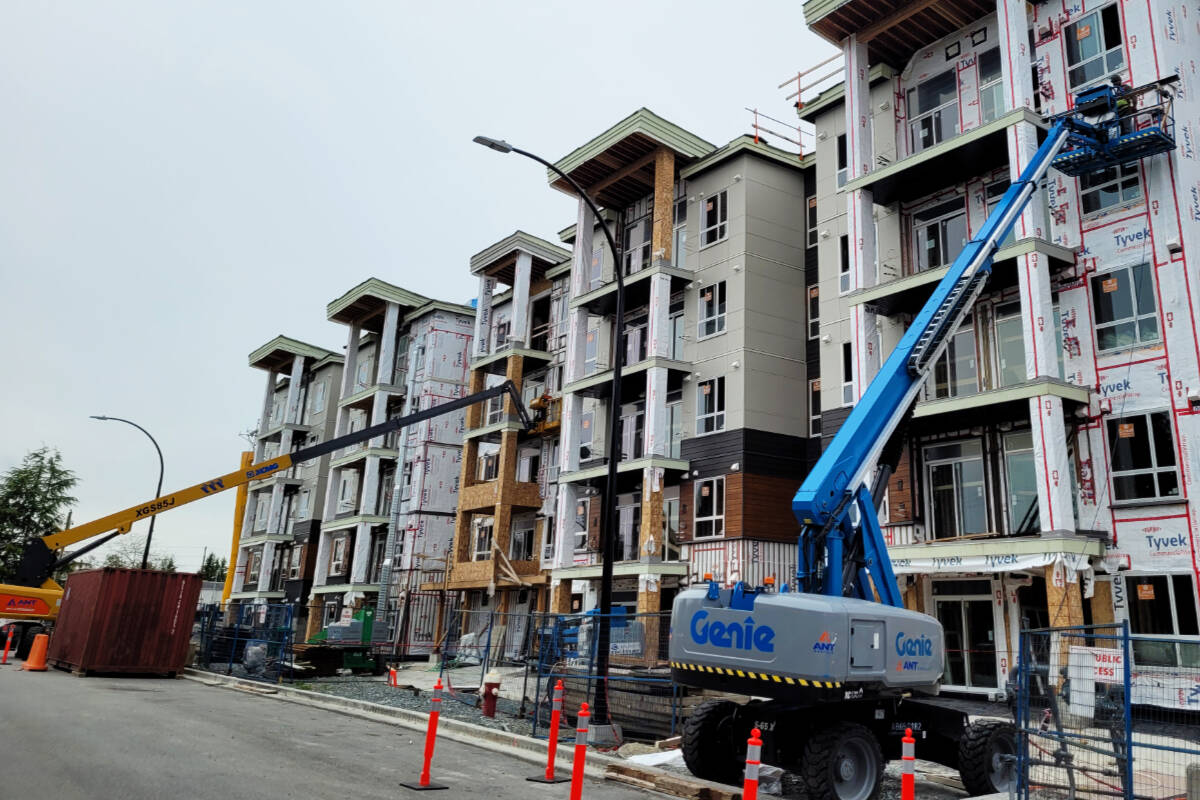As British Columbians struggle to find housing, new numbers won’t provide any comfort.
B.C.’s monthly average of new permitted units in 2024 has dropped to about 4,000, down from around 4,500 in 2023. The average monthly value of building permits, meanwhile, is $1.2 billion in 2024, down from $1.4 billion in 2023.
“The trend is not encouraging,” Brendon Ogmundson, chief economist with British Columbia Real Estate Association, said. “We have big housing targets to hit and the sooner we can get units in the development pipeline, the better.”
Leo Spalteholz, a Victoria-based housing analyst, said B.C. has generally held up better than other provinces on new housing starts, but he expects them to decline.
Both Ogmundson and Spalteholz point to high interest rates for the slow-down, with Ogmundson also pointing to labour costs and overall market conditions.
“We know with interest rates and global inflation pressures, (there) are going to be some challenging times ahead,” Ravi Kahlon, B.C.’s Housing Minister said. “We are in bit of a perfect storm.”
So what can government do to reverse the trend?
“(Given) that nearly all development is done by the private sector and given that rates, labour costs and market conditions are not favourable, there is little the government can do, outside of what they are already doing, which is a lot, to boost the pace of new construction,” Ogmundson said.
RELATED: Missed housing goals proving the need for legislation: B.C. minister
Ogmundson was referring to provincial legislation tabled throughout 2023 to increase the housing supply by increasing density, speeding up the zoning and permitting process, and creating ambitious housing targets for communities.
But several municipalities, the latest being Vancouver, are struggling to meet those targets under the Housing Supply Act.
The act commits Vancouver to building nearly 29,000 net new housing units within five years on top of historic trends. But a staff report says the municipality has created 1,607 net units between Oct. 2023 and March 2024 — well short of the annual goal of 5,202.
Spalteholz said that if government wants to keep building numbers high, it needs to counter increased costs by dropping investment risk elsewhere at an accelerated pace. Such steps could include cutting development costs charges or community amenity contributions; accelerating rezoning, permitting and building code reforms to reduce delays and costs; and countering the market slowdown by increasing non-market construction.
Speaking about the situation in Vancouver, Kahlon said government is prepared to do more, but also called on municipalities to implement the legislation introduced in the fall, so that they can start reaching their housing targets.
“Without that work, it’s going to be difficult for any community to reach their targets,” he said.
RELATED: B.C. residents paying more for mortgages while taking out fewer of them
The drop in the number and value of permitted units reflects an overall drop in construction activity.
The total value for all forms of construction dropped by 24.3 per cent in March 2024 compared to February 2023 and by 35.1 per cent in March 2024 compared to March 2023.

